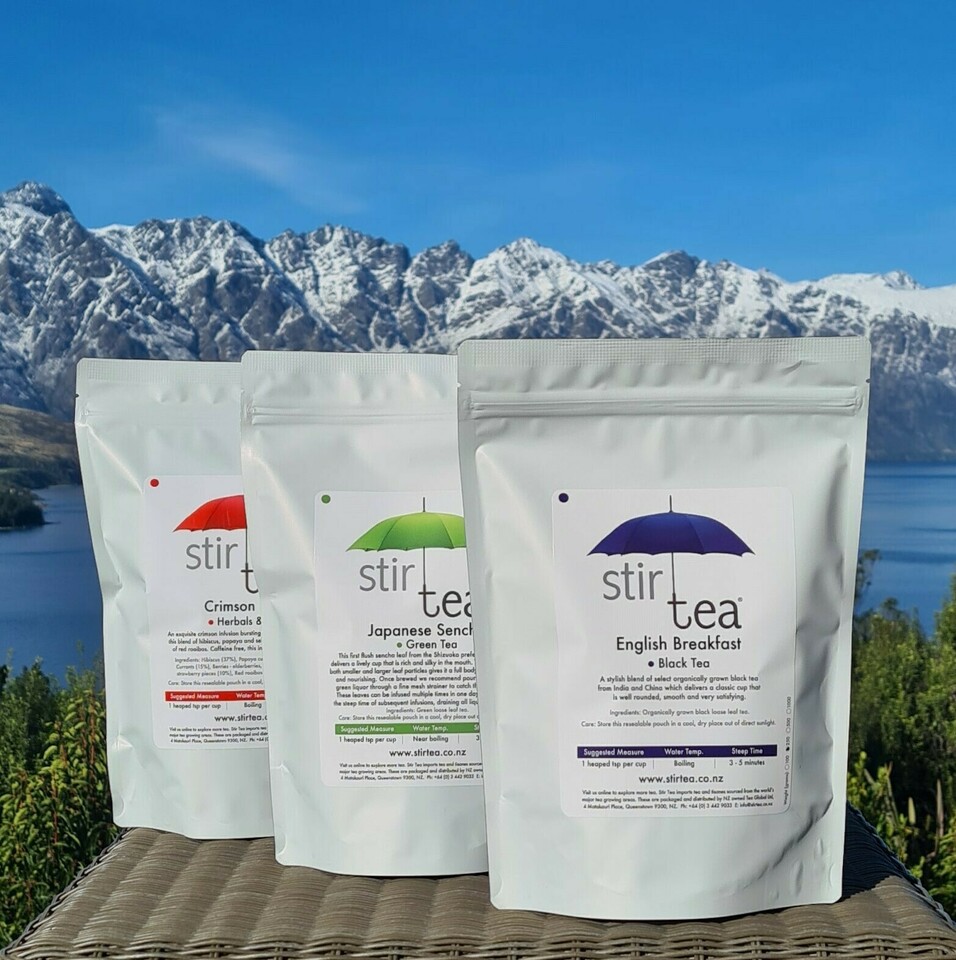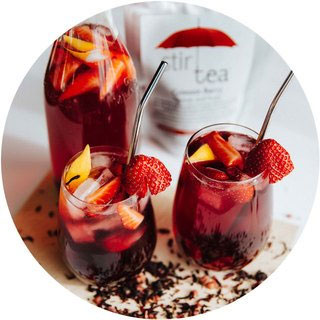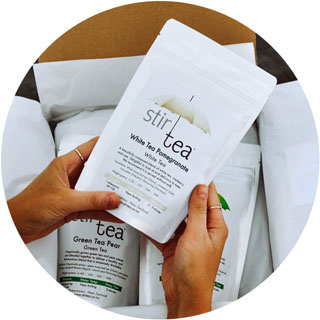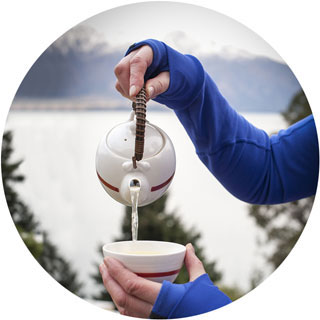Increasingly tea drinkers who are trying to reduce or eliminate dairy from their diet are asking us for a plant based milk alternative. We decided the best way to answer this was to test it for ourselves. So, we set aside an afternoon to run a blind tasting with 5 non-dairy plant based milk alternatives.
The Stir Tea Team Conclusions:
Our Favourite Plant Based Milk Alternatives
This is the order in which the non-dairy milks were ranked for overall taste (with 1 most preferred and 5 least preferred):
- Unsweetened Coconut Milk
- Unsweetened Oat Milk – worth trying. Oat & Soy ranked similarly
- Soy Milk (Regular, with cane sugar) – worth trying
- Unsweetened Rice Milk – not recommended
- Unsweetened Almond Milk – not recommended
** Since publishing this article we have been contacted by a tea lover who has reported great success using cashew nut milk which in their experience did not taint the taste of the tea and provided a creamy texture similar to that of dairy milk. Unfortunately because cashew nut milk is not readily available off the shelf we haven't been able to test this yet but look forward to doing so. Let us know what your experience is.
Methodology to Choosing the Best Non-Dairy Milk
To identify our favourite non-dairy milk to drink in black tea, we followed a set methodology, which is detailed here:
Sample Group: Three tea drinkers – two of those being traditional milk tea drinkers and one non - dairy tea drinker.
Black Tea Used: Stir Loose Leaf Assam (an Indian breakfast style tea) brewed with boiling water, steep time 4 minutes.
Milk Tested – Five readily available brand products plus an organic cow’s milk:
- Unsweetened Almond Milk
- Unsweetened Coconut Milk
- Unsweetened Rice Milk
- Unsweetened Oat Milk
- Soy Milk (Regular, contains cane sugar)
Process: We ran the experiment three times
- Traditional : Adding room temperature milk to the cup first and then pouring the brewed tea into the milk
- Reversed: The brewed tea was poured and milk added to the hot liquid.
- Chilled Milk : Adding chilled milk first and then pouring the tea into the milk
Tests 2 and 3 were done to check for any curdling issues with any of the milks.
All other elements were identical for each brewed cup of tea.
The three members of the group sampled each cup (5 per experiment) and then silently ranked their preferences. They did not know which milk they were sampling in each cup.
The ratio of tea to milk was: 90 mls brewed tea and 15 mls of milk
The Stir Team Results
For the dairy drinkers, dairy was still the favoured drink. However for the purpose of looking at dairy alternatives, all three participants in the test unanimously chose Coconut Milk as their favourite non-dairy milk.
Here is the order in which the non-dairy milks were ranked for taste – 1 being most preferred and 5 being least preferred)
- Unsweetened Coconut Milk
- Unsweetened Oat Milk – very close result between oat and soy
- Soy Milk (Regular, with cane sugar) – a very close third
- Unsweetened Rice Milk
- Unsweetened Almond Milk
Each of these preferences is discussed in more detail below.
Other general observations we made during the experiment included:
- Liquor Colour
With each of the plant based milks, the participants found the colour framed their opinion before tasting the samples. The majority of the plant based milks created a far darker looking tea liquor in appearance. As this experiment was all about taste, we kept the amount of milk added to each cup of tea the same (15mls). However, for day to day use, you may wish to adjust for your own taste. Had we not been conducting this taste experiment, the preference would have been to add more non-dairy milk to create a similar consistency and colour to regular dairy milk.
- Curdling
For each of the experiments, all milks poured well with no evidence of curdling. We note that this may be because the milk is not shocked by boiling liquid. The tea had the correct time to brew so its serving temperature was not boiling point. When using chilled milk, both rice and coconut milk did have a small indication of suspension rather than complete mixing of the milk with the water. The recommendation would be to serve these milks closer to room temperature with your tea if they are your desired choice.
We note that the curdling issue may be more noticeable if the percentage of milk you are using in your tea is more than the traditional drinking style measure we tested (a cup of black tea with a small portion of milk).
- Technique
We found adding the milk first and then pouring the tea over it gave us a better liquor consistency and experience for each of the milk choices.
Our Experiences with Each Milk Type
Here are further details regarding our experiences with each of the non-dairy milks we used:
- Unsweetened Coconut Milk
Interestingly this was the sweetest tasting despite having no added sugar in the milk. Coconut is naturally sweet and this milk allows for a smooth, creamy and slightly sweet tea. The coconut flavour was pleasant but obviously this is only a suitable alternative if you like coconut.
- Unsweetened Oat Milk – Worth Trying
This milk also provided a smooth finish to the tea and the colour was similar to dairy milk when tea was added. No signs of suspension and a well flavoured experience. It was a very close result between the oat and soy milk option and we considered they were each good alternatives to dairy for tea drinkers
- Soy Milk (Regular, with cane sugar) – Worth Trying
Despite having cane sugar as an ingredient of the soy milk, unlike the coconut milk this did not create a sweet tea. There was a light graininess to the texture however the creaminess of the milk provides a thicker quality as you drink it and the overall experience is pleasant. The colour of the tea is consistent with that of a dairy based tea.
- Unsweetened Rice Milk – Not recommended
The colour of tea is rather dark and the consistency is quite thin. There was less astringency than with the almond milk however there was no depth to it. Would recommend 2-3 times the quantity of milk to be added e.g. 30-45 mls. A very slight suspension was noted when the cold milk was added rather than room temperature milk.
- Unsweetened Almond Milk – Not recommended
The consistency of this milk within the tea is rather thin and leaves a rather insipid aftertaste in the mouth. There was a decrease in stability of the drink over time as it sat during the experiment there was a slight separation/suspension. Recommendation would be to use an alternative milk. If this is your chosen dairy substitute we would recommend double or triple the quantity of milk e.g 30-45mls.
We'd be keen to learn what your favourite non-dairy based milk is, and if you have tried any of the plant based milks we used in our experiement! Don't be shy: let us know today!
Posted: Friday 7 June 2019







